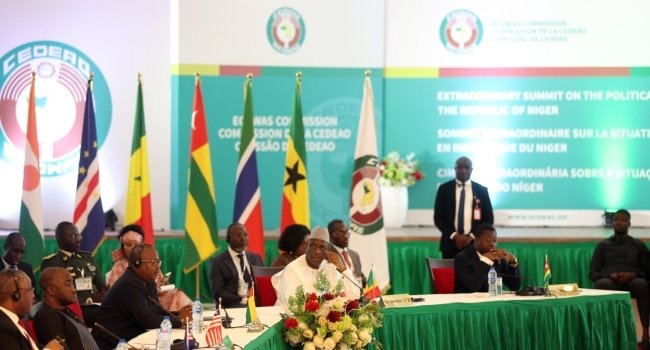The Economic Community Of West African States (ECOWAS) reminded Niger’s coup leaders on Friday that it was “not too late” to reconsider their position as they haggle over a restoration to civilian authority, with military force still “very much on the table.”
Generals that overthrew President Mohamed Bazoum in a July 26 uprising have sought for a three-year transition period, while the Economic Community of West African States has demanded that constitutional order be restored immediately.
With delegations arriving in Niamey, ECOWAS maintains that negotiations are its top priority, as defense officials prepare a standby mission for a possible “legitimate use of force” to restore democracy if necessary.
The coup in Niger has heightened tensions in the Sahel region, where three previous governments have been overthrown by military coups since 2020, and terrorists control large swaths of land.
ECOWAS leaders have stated that they will not allow another coup in their area and have already imposed sanctions on Niger in order to put pressure on the new leadership.
“Even now, it is not too late for the military to reconsider its action and listen to the voice of reason as the regional leaders will not condone a coup d’etat,” ECOWAS commission president Omar Alieu Touray told reporters in Abuja.
“The real issue is the determination of the community to halt the spiral of coup d’etats in the region.”
ECOWAS leaders are already dealing with military administrations in Mali, Burkina Faso, and Guinea, all of whom are attempting to move to democracy following coups of their own.
After initially refusing to negotiate, Niger’s new authorities have stated that they remain open to talks, but have delivered contradictory signals, including a threat to arrest Bazoum with treason.
Bazoum has been held at the official mansion with his family since the coup.
Military authorities in Niger have also warned against any intervention, accusing ECOWAS of preparing an occupying force in collaboration with an unidentified foreign power.
Niger agreed on Thursday with the governments of neighboring Mali and Burkina Faso to allow their forces to enter its territory in the event of assault.






